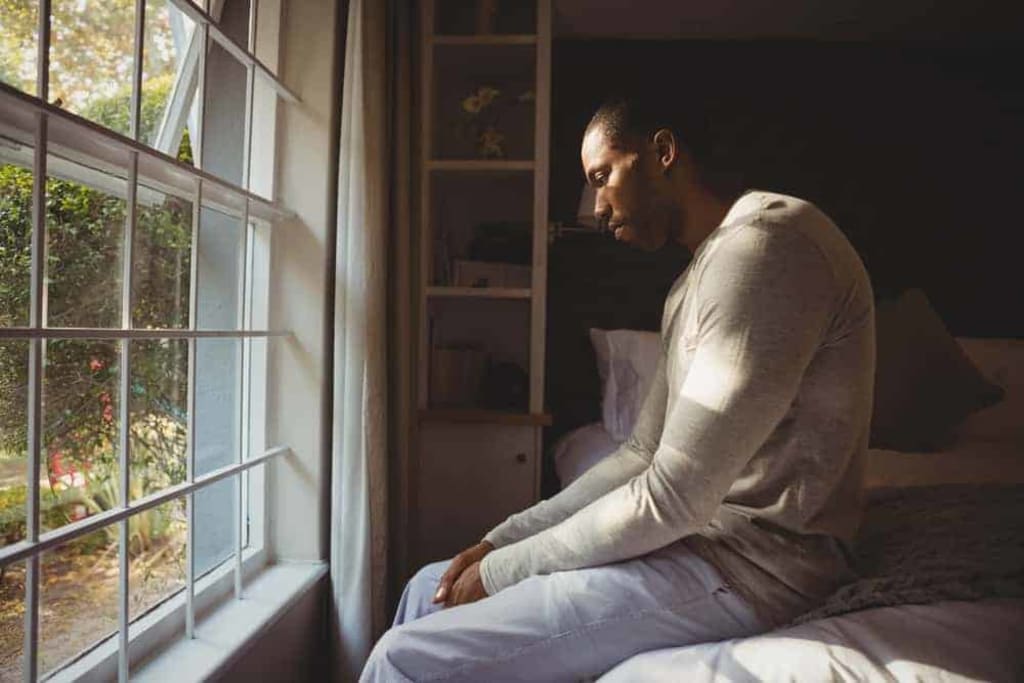Understanding Depression: What It Looks Like and How It Impacts Daily Life
Symptoms, Diagnosis, Treatment, and the Importance of Seeking Help

Depression is a mental illness that can affect anyone, regardless of their age, gender, or background. It is a complex condition that can manifest in various ways, making it difficult to identify and diagnose. In this article, we will explore what depression looks like and how it can impact individuals who are struggling with this condition.
What is Depression?
Depression is a mental health disorder that affects a person's mood, thoughts, and behaviors. It is characterized by persistent feelings of sadness, hopelessness, and loss of interest in activities that a person once enjoyed. Depression can also cause physical symptoms, such as fatigue, changes in appetite, and trouble sleeping. It can be a long-lasting condition that requires treatment to manage.
Depression can be triggered by a variety of factors, including genetics, environmental factors, and life events. Trauma, chronic stress, and physical illness can also contribute to the development of depression.
What Does Depression Look Like?
Depression can manifest in various ways, and symptoms can vary from person to person. However, some common signs of depression include:
Persistent sadness or feelings of hopelessness - Individuals with depression often feel sad or down most of the time. They may feel like there is no hope for the future and that things will never get better.
Loss of interest in activities - People with depression may lose interest in activities they once enjoyed, such as hobbies or spending time with friends and family.
Changes in appetite or weight - Depression can cause changes in appetite, resulting in weight loss or gain. Some individuals may experience an increase in appetite, while others may have little to no appetite.
Sleep problems - Depression can cause sleep problems, including insomnia, difficulty falling asleep, or oversleeping.
Fatigue - People with depression may feel tired or have low energy, even if they have not engaged in any physical activity.
Difficulty concentrating or making decisions - Depression can make it challenging to focus on tasks or make decisions.
Feelings of guilt or worthlessness - Individuals with depression may experience feelings of guilt or worthlessness. They may blame themselves for their condition and feel like they are a burden to others.
Thoughts of suicide - Depression can lead to thoughts of suicide or self-harm. If you or someone you know is experiencing suicidal thoughts, it is essential to seek help immediately.
How Does Depression Impact Daily Life?
Depression can impact various aspects of a person's daily life. It can affect work performance, personal relationships, and overall quality of life. Individuals with depression may struggle to complete tasks or meet deadlines, leading to difficulties at work or school. Depression can also strain personal relationships, as individuals may withdraw from social interactions or become irritable and easily agitated.
Depression can also have physical effects on the body. Individuals with depression may experience headaches, muscle aches, or other physical symptoms that are not easily explained. These physical symptoms can make it challenging to manage daily tasks and can impact overall well-being.
How is Depression Diagnosed and Treated?
Diagnosing depression involves a comprehensive evaluation of a person's symptoms and medical history. A mental health professional, such as a psychologist or psychiatrist, may conduct this evaluation. They may also administer questionnaires or other assessments to gather additional information.
Treatment for depression typically involves a combination of medication and therapy. Antidepressant medication can help to manage symptoms of depression, while therapy can provide individuals with the tools they need to cope with their condition. Cognitive-behavioral therapy (CBT) is a common form of therapy used to treat depression. It focuses on changing negative thought patterns and behaviors that contribute to depression.
In some cases, other treatments, such as electroconvulsive therapy (ECT) or transcranial magnetic stimulation (TMS), may be recommended for severe cases of depression that do not respond to other forms of treatment.
Self-care practices can also help individuals manage symptoms of depression. Engaging in regular exercise, practicing mindfulness and meditation, getting enough sleep, and maintaining a healthy diet can all help to improve mood and overall well-being.
It is essential to seek help if you or someone you know is experiencing symptoms of depression. Depression is a treatable condition, and with the right support and treatment, individuals can learn to manage their symptoms and improve their quality of life.
The Importance of Seeking Help
Depression is a serious mental health condition that can have long-lasting effects on a person's life. It can impact daily functioning, personal relationships, and overall well-being. If left untreated, depression can worsen and lead to thoughts of suicide or self-harm.
It is essential to seek help if you or someone you know is experiencing symptoms of depression. Talking to a mental health professional can provide individuals with the support and resources they need to manage their condition. Treatment for depression is available and can help individuals learn to cope with their symptoms and improve their quality of life.
Conclusion
Depression is a complex mental health condition that can manifest in various ways. It can impact daily functioning, personal relationships, and overall well-being. Common symptoms of depression include persistent sadness or feelings of hopelessness, loss of interest in activities, changes in appetite or weight, sleep problems, fatigue, difficulty concentrating or making decisions, feelings of guilt or worthlessness, and thoughts of suicide.
Treatment for depression typically involves a combination of medication and therapy. Self-care practices, such as regular exercise, mindfulness, and meditation, and maintaining a healthy diet, can also help individuals manage their symptoms.
It is essential to seek help if you or someone you know is experiencing symptoms of depression. With the right support and treatment, individuals can learn to manage their condition and improve their quality of life.





Comments
There are no comments for this story
Be the first to respond and start the conversation.